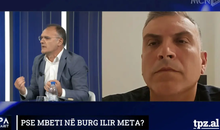
 Flash News
Flash News
Abuzimet me tenderat e UBT-së, SPAK merr të pandehur 28 pedagogë e biznesmenë
Një vit pas vdekjes së babait, ndërron jetë dhe ish-futbollisti i njohur
Përfshihet nga flakët një stallë në Fier, digjen mjete bujqësore e dengje bari
Taulant Xhaka prezantohet si trajner-lojtar te i skuadra shqiptare në Zvicër
Ministri i Jashtëm iranian pranon dëmet serioze në centralet bërthamore
BU professor doubts the assertion that the Albanian opposition is under Kremlin influence
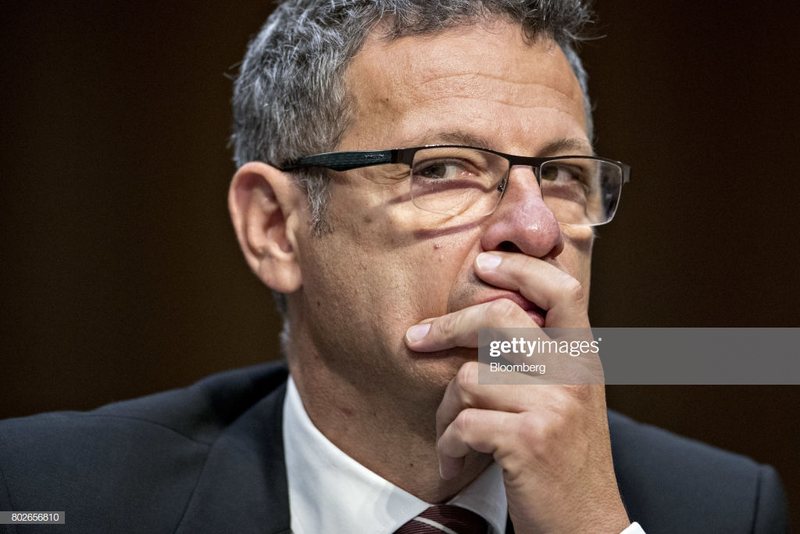
by Liridon Cecja
Vesko Garcevic, Professor of the Practice of International Relations at Boston University, served as the Ambassador of Montenegro in Brussels (NATO) and Vienna (Organization for Security and Cooperation in Europe – OSCE and other International Organizations). He was a Montenegrin Ambassador to Austria, Belgium, Luxembourg, and the Netherlands. During his diplomatic career, he held important positions at the challenging political time of the dissolution of the Socialist Federal Republic of Yugoslavia and democratic transition of Montenegro. After Montenegro regained independence in 2006, he served as the first Montenegrin Ambassador to Austria and the OSCE.
Politiko.al: Mr. Garcevic, as you well know, in Montenegro, Serbia, and Albania, it has been two months since opposition political parties are protesting against respective governments. Do you find similarities in their actions?
Though the protests in Montenegro, Serbia, and Albania can’t be placed in the same basket they have many things in common. They indicate the growing discontent of people with political elites and their revolt against corruption, particracy, clientelism and the widening gap between losers and winners of the so-called democratic transition. However, they differ one from another. In some cases, like in Albania, the opposition overtly leads the protests, whereas in Serbia and Montenegro opposition at the beginning kept a low-key role to become more and more involved over time. In my opinion, there is a high probability for the nationalistic opposition in both states to hijack the citizens’ movements. The organizational capacity of those who are in charge of the protests is also not clear.
Politiko.al: In Albania, the government thinks that Russia is interfering and impacting the opposition to destabilize the country. What's your opinion, bearing in mind the fact that both countries don’t have any historical, political or cultural ties, compared to say Serbia or Montenegro?
It’s difficult to answer this question since I’m not in the loop and don’t know what is exactly going on behind the scene. It’s a historical fact that Moscow has never been able to make a strong impact on the Albanian cultural space or influence Albanian political actors. It had been the case even during the time of communism. With a sort of doubt, I would take the assertion that the opposition or any important political group among Albanians has been under the influence of the Kremlin.
Politiko.al: As an expert of international relations, do you think that Moscow tends to collaborate with the oppositions or the governments?
It depends on who is in power. I’ll give you an example - In sharp contrast to the Maidan street protests in Ukraine or demonstrations in North Macedonia, the official Moscow expressed full support to protesters in Podgorica. In these cases, official Russia used opposite narratives to defend its position. In the case Ukraine and Macedonia, the Kremlin took the side of governments, criticizing, as they called them, illegitimate and violent protests. Conversely, Russia disparaged the Montenegrin Government for joining NATO against the will of its citizens.
I believe that Moscow carefully follows what’s going on in the region backing its political allies. In Belgrade, the Kremlin has nothing to lose. Whoever wins will be an ally of Russia. Albania is also a clear case but on the opposite side. Whoever wins will be leaning towards the West. Montenegro can be a game changer. If the nationalist, pro-Russian opposition wins, they may decide to adjust the country’s foreign policy trajectory. They may, for example, decide to revoke the recognition of Kosovo what they promised to do if come to power.
Politiko.al: How do you see the future of the region, now that the United States and EU seem disengaged with the Balkan, at least compared to past years?
It was easier to advocate the Euro-Atlantic agenda 10 or 15 years ago. The EU and the USA were proactive and more engaged in the region in the late 90s and the beginning of this century. On the other hand, I see no viable alternative to the full integration in the EU and NATO. If we want to transform our societies and make them more functional, more transparent our governments more accountable and less corrupted; that’s the only way to go forward. Given Brussels’ lack of appetite for new members the aspirant countries from the region should have convincing reform results to be able to keep the enlargement high on the EU’s agenda.
Të fundit


Shqiptari s’ble dot banesë, por Shakohoxha e gjen gjithmonë një rrëfim sportiv për krizën
28 Qershor 2025, 12:42
Zjarr në Laprakë, flakët përfshijnë zonën përballë shkollës 'Aleks Buda'
28 Qershor 2025, 12:27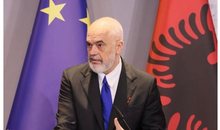
“Një në 50 shqiptarë janë në burg”, Rama sfidon Farage: Provoji dhe i marr të gjithë
28 Qershor 2025, 12:11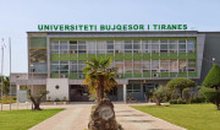
Abuzimet me tenderat e UBT-së, SPAK merr të pandehur 28 pedagogë e biznesmenë
28 Qershor 2025, 11:50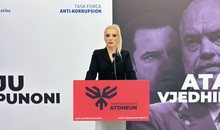

Ja se sa herë duhet të bëni dush përgjatë gjithë javës, sipas dermatologes
28 Qershor 2025, 11:17
Një vit pas vdekjes së babait, ndërron jetë dhe ish-futbollisti i njohur
28 Qershor 2025, 10:55
Kultivuan k*nabis, arrestohen babë e bir në Tepelenë
28 Qershor 2025, 10:36
Situata me zjarret në vend, në 24 orët e fundit u raportuan 9 vatra zjarri
28 Qershor 2025, 10:17
PR-i me pagesë i Veliajt, si instrument për manipulimin e opinionit publik
28 Qershor 2025, 10:02

Forcat ruse godasin një pallat në Odesa, humbin jetën dy persona, plagosen 9 të tjerë
28 Qershor 2025, 09:33

Këmbimi valutor 28 Qershor/ Me sa blihen e shiten monedhat e huaja ditën e sotme
28 Qershor 2025, 08:56
Horoskopi, zbuloni parashikimin e yjeve për shenjën tuaj
28 Qershor 2025, 08:39
Parashikimi i motit, si do të ndryshojnë temperaturat gjatë ditës
28 Qershor 2025, 08:22
Posta e mëngjesit/ Me 2 rreshta: Çfarë pati rëndësi dje në Shqipëri
28 Qershor 2025, 07:54
Gazetari: 1/4 e familjeve shqiptare jeton vetëm me paratë e emigracionit
27 Qershor 2025, 22:53
Banorët e Astirit denoncojnë përzierjen e ujit të pijshëm me ujërat e zeza
27 Qershor 2025, 22:29
Falsifikagtori i kombit
27 Qershor 2025, 21:58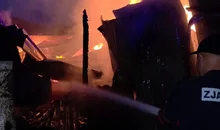
Përfshihet nga flakët një stallë në Fier, digjen mjete bujqësore e dengje bari
27 Qershor 2025, 21:46
Taulant Xhaka prezantohet si trajner-lojtar te i skuadra shqiptare në Zvicër
27 Qershor 2025, 21:39


Trump flet sërish për Kosovën dhe Serbinë: shin gati të përplaseshin në një luftë të madhe
27 Qershor 2025, 21:10
Tragjedi në Francë/ Bie avioni, humbin jetën 3 persona
27 Qershor 2025, 20:54
BIRN: Ja kush e mbuloi udhëtimin e Ramës me avion privat në aeroportin e Hagës
27 Qershor 2025, 20:40

Të adhurueshme apo thjesht të çuditshme? Si pushtuan botën kukullat Labubu
27 Qershor 2025, 20:07
Analiza/ Si i përdori SHBA-ja bombat depërtuese në objektet bërthamore të Iranit?
27 Qershor 2025, 20:01
Vlora turistike me djegie mbetjesh!
27 Qershor 2025, 19:41

Cristiano Ronaldo rinovon kontratën me Al Nassr deri në vitin 2027
27 Qershor 2025, 19:17
Vrau vajzën dhe fqinjin në Itali, dënohet me burgim të përjetshëm Taulant Malaj
27 Qershor 2025, 19:02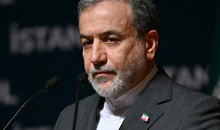
Ministri i Jashtëm iranian pranon dëmet serioze në centralet bërthamore
27 Qershor 2025, 18:50
Ndotja e lumit Vjosë, Shehu: Regjimi po e degradon në funksion të korrupsionit!
27 Qershor 2025, 18:32
Bleu vota për të bijën, SPAK çon për gjykim babain e kandidates së PSD-së
27 Qershor 2025, 18:21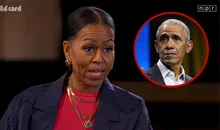
Michelle Obama rindez thashethemet për divorc me Barack Obama
27 Qershor 2025, 18:10
Bezos dhe Sánchez organizojnë dasmën e shekullit në zemër të Venecias, yjet që marrin pjesë
27 Qershor 2025, 17:55
"KAS legjitimoi deformimin e votës"/ Dogjani: PD nuk ndalet! Do nxjerrim prova të reja
27 Qershor 2025, 17:34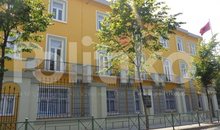
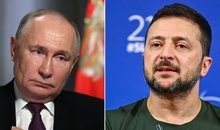
Ukraina kërkon takim Zelensky–Putin pas bisedimeve për çështje humanitare
27 Qershor 2025, 17:16
Kokainë mes bananeve/ Media ekuadoriane zbardh rrjetin shqiptar: Nga Rexhepi te Murataj
27 Qershor 2025, 16:49
Makina përplas 16-vjeçarin me motomjet në Vaun e Dejës
27 Qershor 2025, 16:36
Para dhe sukses në karrierë, shenja më fatlume e horoskopit për muajin Korrik
27 Qershor 2025, 16:26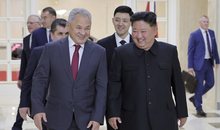
Rusia përgatit ofensivë verore me ndihmën e trupave nga Koreja e Veriut në Ukrainë
27 Qershor 2025, 16:15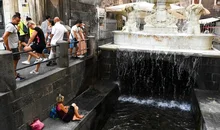
Temperaturat mbi 40°C ! 21 qytete italiane në alarm të kuq, autoritetet apel për kujdes
27 Qershor 2025, 16:00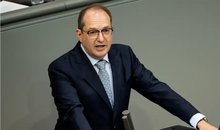
Lajm i keq për emigrantët, Gjermania pezullon përkohësisht bashkimet familjare
27 Qershor 2025, 15:46
Alizoti: Ja kur do të nisë analiza e brendshme në PD
27 Qershor 2025, 15:33
PL denoncon punësimet në administratë para zgjedhjeve të 11-majit: Pse SPAK nuk reagon?
27 Qershor 2025, 15:16
Katër arsye përse nuk ju zë gjumi natën
27 Qershor 2025, 15:08
Dy të moshuar përdh*nojnë 38-vjeçaren në Tiranë
27 Qershor 2025, 14:59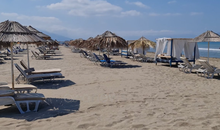
Ndërron jetë italiani në plazhin e Zvërnecit
27 Qershor 2025, 14:49
Dashuri me shikim të parë dhe ndarje, korriku i paparashikueshëm për shenjat!
27 Qershor 2025, 14:31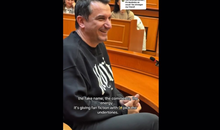
Veliaj ‘lufton’ akuzat për korrupsion me fushatë PR-i në TikTok
27 Qershor 2025, 14:23
Shpërthen bombola e gazit në Shëngjin, plagoset një grua
27 Qershor 2025, 14:09
Skandali mjedisor në Vjosë, procedohet përgjegjësi i dekantimit të naftës
27 Qershor 2025, 13:58
Flokët e thinjura nuk shkaktohen nga mosha, stresi djeg qelizat e pigmentit nga brenda
27 Qershor 2025, 13:50
Gjendet pa shenja jetë 33-vjeçari në Elbasan
27 Qershor 2025, 13:36


Vdes krimineli që ndihmoi në frymëzimin e teorisë së 'sindromës së Stokholmit'
27 Qershor 2025, 13:19
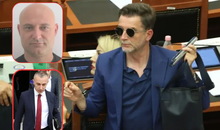

Roja gjendet i varur në pallatin ku punonte në Vlorë
27 Qershor 2025, 12:51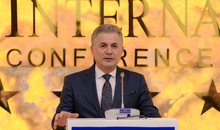
Interesi politik partiak përballë interesit kombëtar
27 Qershor 2025, 12:43
Tabaku: Kriza e xhepave të shqiptarëve është pasojë e keqqeverisjes
27 Qershor 2025, 12:30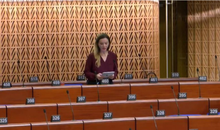

Shifra alarmante/ Vetëm 9% e bonusit të bebeve u përdor në janar-prill, Shqipëria po plaket
27 Qershor 2025, 12:09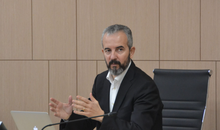
KQZ shpërndan mandatet për deputet në 4 qarqe
27 Qershor 2025, 12:02

Noka del nga SPAK: U thirra për denoncimet e fushatës, krimi elektoral po i bën karshillëk
27 Qershor 2025, 11:36
Elitat e reja nuk presin duartrokitje, ato ndërtohen në heshtje, sfidë pas sfide
27 Qershor 2025, 11:30
Haxhiu: Nëse s’i marr 61 vota në votim të fshehtë, tërhiqem
27 Qershor 2025, 11:24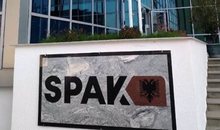
Hyri në e-mailin e 3 prokurorëve të SPAK, lihet në burg Zamblak Gjonaj
27 Qershor 2025, 11:06

Flamur Noka paraqitet në SPAK
27 Qershor 2025, 10:40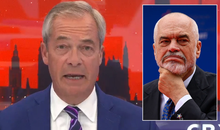


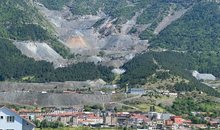

Akuzohet si pjesë e një grupi kriminal, arrestohet 23-vjeçari në Vaun e Dejës
27 Qershor 2025, 09:41
Çfarë rrezikon Kosova nga mungesa e institucioneve të reja?
27 Qershor 2025, 09:32
Në rrezik urie, Izraeli mbyll rrugën për ndihma për palestinezët në Gaza
27 Qershor 2025, 09:21
Këmbimi valutor 27 Qershor/ Me sa blihen e shiten monedhat e huaja ditën e sotme
27 Qershor 2025, 09:15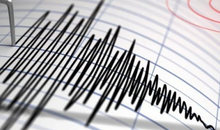
Lëkundje të njëpasnjëshme tërmeti në Tiranë
27 Qershor 2025, 09:02
A ndikon soda e bukës kundër problemeve me diabetin
27 Qershor 2025, 08:53
Shpërthim me tritol në një dyqan në Fushë Krujë
27 Qershor 2025, 08:46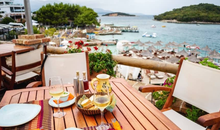
Nxehet punësimi sezonal në bregdet, kërkohen punonjës me paga deri në 250 mijë lekë
27 Qershor 2025, 08:35
Horoskopi, çfarë kanë rezervuar yjet për ju sot
27 Qershor 2025, 08:20
Parashikimi i motit, si do të ndryshojnë temperaturat gjatë ditës
27 Qershor 2025, 08:04
Posta e mëngjesit/ Me 2 rreshta: Çfarë pati rëndësi dje në Shqipëri
27 Qershor 2025, 07:52

Gara për kreun e BKH/ Bushati: Bëjnë karrierë vetëm ata që përkulen
26 Qershor 2025, 22:41
Lapaj: Mund të shkrihemi në një parti me 'Nisma Thurje'
26 Qershor 2025, 22:25
Rinumërimi i votave, Lubonja: Manipulimi zgjedhor është bërë përpara 11 majit
26 Qershor 2025, 22:12
Qendër Shëndetësore brenda fushës sportive, çudia e projektit të radhës në Lushnje
26 Qershor 2025, 22:00